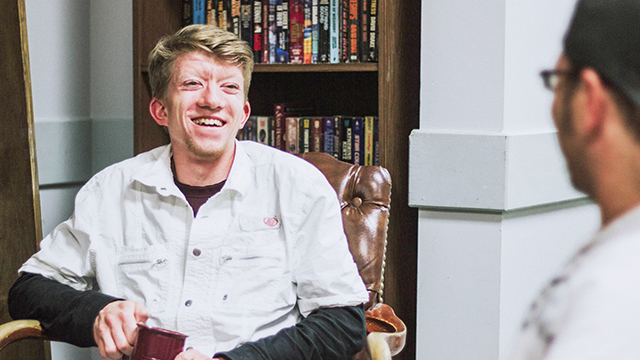It’s only natural for us to want to help and support those we love, but sometimes that desire to help can actually make the problem worse.
What Does it Mean to Support Someone?

Supporting a loved one who is struggling with addiction means helping them navigate the road to recovery. This assistance can take many forms, from concrete assistance such as providing transportation, housing, or childcare to emotional support such as encouraging someone to seek help, going to therapy with someone, or simply being available if they need to talk.
What Does it Mean to Enable Someone?
On the surface, enabling can look similar to support. After all, enabling involves helping someone achieve their goals. The problem is that those goals (such as continuing to abuse drugs or alcohol) are harmful. Support means helping your loved one achieve their goal of recovery while enabling involves helping them continue to engage in destructive behaviour.
The true difference is how much help your actions are providing in the long term. Someone who enables helps their loved one continue to engage in destructive behaviours, such as fueling their alcohol or drug addiction, providing assistance in the short term, but ultimately doing the person they care about a grave disservice.
Support means helping your loved one do what is best for them in the long run, even if it means straining relationships, withdrawing certain types of support, or having to say “no” in the short term.
How Can I Tell if I’m Being Supportive or Just Enabling?
To help you determine if your actions are supportive or enabling, you need to ask yourself whether you’re providing the type of assistance that perpetuates destructive behaviours or discourages them. Some examples of enabling behaviour may include:
Making Excuses For Your Loved One
When you make excuses for someone who is struggling with addiction, you are helping them deny that a problem exists and avoid taking responsibility for their actions. This response is also often tied to the misinformed idea that if you ignore the problem (and let your loved one continue to ignore it too), it will resolve itself or just go away on its own.
You may find yourself saying things like, “She’s had a hard day, what’s the harm in a few drinks?” or “He’s just going through a phase. He’ll grow out of it.”
You may not always be making excuses for your loved one to others; you may find that you are excusing their behaviour to yourself as well.
Giving Your Loved One Money
To support someone’s recovery, you may offer to provide tangible support such as transportation, childcare, food, or housing. However, all of these forms of assistance are supportive because they help your loved one continue on their journey to recovery.
When you give your loved one money that they will ultimately end up using to purchase drugs or alcohol, you are enabling, not supporting. Even if that money goes to cover your loved one’s rent or mortgage payment (because they spent all their money on drugs and alcohol), you are ultimately helping them continue to engage in addictive and destructive behaviours.
Even if you explicitly say the cash you are providing is to be used for something good (groceries, rent, etc.), that doesn’t mean it will be used that way by your loved one.
Shouldering Your Loved One’s Responsibilities
It’s one thing to help your loved one manage their responsibilities; it’s another thing to simply do them yourself. Examples of shouldering your loved one’s responsibilities may include doing their share of the housework or picking their children up from school but can take many different forms.
Rescuing Your Loved One From Uncomfortable Situations
When you rescue someone from a bad situation caused by their drug use (such as paying their debts, repurchasing personal items from a pawn shop, lying to employers or other loved ones, or bailing them out of jail) you are only supporting their ability to continue to make destructive decisions by removing the negative consequences of their actions or dealing with those consequences yourself.
While it can be incredibly difficult to stand by while a loved one gets fired or spends the night in jail, continuing to shield your loved one from the negative consequences of their actions will ultimately do them more harm.
Lying For Your Loved One
Lying to cover up someone else’s behaviour is a sign of enabling, and doesn’t help your loved one learn to take responsibility for their actions because it shields them from the negative consequences of their choices.
Though it may be easier to simply give in and lie for your loved one, holding them accountable for their own actions and decisions will serve them better in the long run.
You Put Your Loved One’s Needs Above Your Own
No matter how painful it is, you need to ensure your own physical and emotional needs are being met before you can truly help someone else. As long as you set clear boundaries, and remain firm, you can support your loved one on their recovery journey without compromising your own mental health or wellbeing.
You Exhibit Co-Dependant Behaviours
Almost every enabler presents at least some degree of co-dependent behaviour. Some of us may experience personal gratification from helping loved ones struggling with addiction. You may feel like helping them is a good deed, or feel proud of yourself for making a sacrifice on their behalf, or even gain a sense of control over the situation by feeling needed.
However, enabling behaviours ultimately only encourage your loved one to continue to engage in destructive behaviours.
If you are concerned that you are enabling, as opposed to supporting your loved one, you may want to consider joining the Calgary Dream Centre’s family support program, ReVisioning the Family. This eight-week online program aims to help you learn how you can support your loved one while still prioritizing your own mental health and wellbeing.



